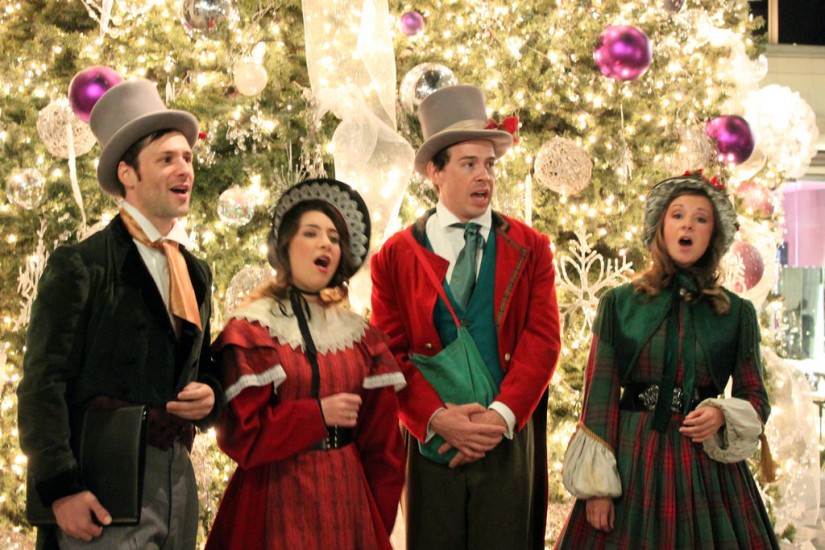This year’s battle in the War on Christmas is being fought over “Baby, It’s Cold Outside.” According to some, the song’s lyrics promote date rape. According to others, including a radio station in Kentucky playing the tune on continuous loop, it’s a harmless ditty and a Christmas classic. Commentators on Fox News, who look forward to the War on Christmas more eagerly than children await actual Christmas, put the controversy in heavy rotation on their airwaves. “Do we get to a point where human worth, warmth, and romance are illegal?” Tucker Carlson wailed on his television show.
In some ways, the “Baby, It’s Cold Outside” squabble is as contemporary as it gets: an outgrowth of the #MeToo movement on the one hand, and of the right’s anti-PC hysteria on the other. But it also fits into the long history of censoring and scrutinizing Christmas songs, and the much larger debate over who gets to control the holiday.
Like so many early Christian rituals, singing carols was a holdover from the winter feast celebration of Saturnalia, when people sang and danced in a ring. Now celebrants danced and sang around nativity scenes, though often with the same drunken abandon that had been a part of the pagan festivities. Because of those origins, some church leaders tried to prohibit carol singing while others sought to tame and solemnize it. In the year 129, for example, Bishop Telesphorus of Rome exhorted believers to gather inside churches to sing “Gloria in Excelsis Deo” on Christmas Day. Centuries later, both St. Francis of Assisi and later Martin Luther emphasized carol singing as central to Christian worship at Christmastime.
The rise of the Puritans brought a halt to carol singing of all types in England and North America. Puritans argued that the celebration of Christmas had no biblical support, condemned the holiday’s pagan roots, and blamed the Catholic Church for embellishing the day with excessive ritual and pageantry. Opposed to feast days for both reasons of theology and social control, the Puritans banned Christmas altogether in the 1640s, imposing strict penalties on anyone found celebrating it. (Talk about a War on Christmas … ) For Puritan authorities, singing carols was one of the gravest offenses because the practice could be traced to singing songs to the Roman goddess Ceres and because caroling also usually involved heavy drinking and louche conduct.
